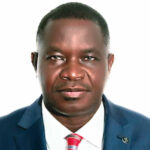The Emerging Leaders Council, the youth arm of Every Woman Treaty, an NGO representing women’s rights activists in 147 countries, implored UN and world leaders to address the pandemic of violence against women and girls through global policy during an online conference on the issue.
The conference, held September 20 and entitled “The Future We Want: Young voices on ending violence against women and girls,” exposed the impact violence has on women’s lives, the ways in which new technology has generated new forms of violence and increased women and girls’ vulnerability to both physical and online violence, the crucial role men must play in ending all forms of violence perpetrated against women and girls and the role a treaty can play in addressing the violence globally.
“Women are not afforded the same safety and security as men,” said conference presenter Suvaiba Fatima Ahmed (India), a writer with the Delhi Commission for Women. “Violence leaves scars that extend far beyond physical injuries. It erodes self-esteem, causes trauma, and can lead to depression and anxiety.”
Ahmed also spoke of the economic impact on women, including their inability to work and earn a living. “The economic consequences can be long-lasting, trapping women and their families in a cycle of poverty,” she said.
Lilian Dibo (Cameroon), founder of the Lilian Dibo Foundation, spoke of her own experience with online violence to shed light on the horrible reality of technology-enabled violence, which allows perpetrators to harass, assault and blackmail women and girls. She emphasized that this violence not only limits women’s digital rights, but also leads to gross psychological and emotional damage.
Mubarak Idris (Nigeria), a consultant at ChangemakerXchange, said it is not enough for men to say they do not perpetrate violence, they must be allies. He offered specific ways men can work to change the culture of violence. “We need to counter the problematic normative pressures that boys face,” he said. “In some homes, boys are not actually allowed to go to the kitchen because it is meant for women. Everyone should learn how to cook.”
Idris added that men need to set positive examples for the younger generation with their own behavior and pointed out that men benefit from ending violence. It leads to more harmony amongfamilies and communities, and for governments, “it saves money if we foster a gender equal world.”
At the conference’s close, delegates and young activists called on world leaders at the United Nations to address this violence through global policy.
“As young people, we are raising our voices and calling on UN leaders and UN Member States to support the creation of a binding framework to end violence against women and girls,” said Malalai Popalzai (Afghanistan), lead activist of Every Woman Treaty’s Emerging Leaders Council, reading the conference declaration.
Specifically, the young leaders called for a treaty in the form of a new Optional Protocol to the Convention on the Elimination of All Forms of Discrimination Against Women (CEDAW) dedicated to ending violence against women and girls.
An Optional Protocol to CEDAW would create a binding framework for addressing violence against women and girls in all its forms, including technology. It would codify into law interventions proven to lower rates of violence, including legal reform, training and education, survivor support systems and violence-prevention education. It would also provide an opportunity to have a specific, metrics-based reporting framework to strengthen implementation.
Activists from Brazil, Kenya, Lebanon, the Philippines, Rwanda and the United States also provided commentary and leadership.
Online trolls, many from Russia, China and South Asia, disrupted the conference with graphic images and comments, underscoring the need for greater protections globally.
“As the world changes and evolves, so must laws and strategies,” said keynote speaker Marycela Zamora (Costa Rica), founder and executive director of Nosotras Women Connecting.
The conference and the call for action took place while world leaders met at the United Nations in New York City for the General Assembly’s high-level week.
Every Woman Treaty is a coalition of more than 3,000 women’s rights activists and organizations in more than 147 nations operating on the firm belief that to unlock human flourishing, the world must deliver lives free from violence for every woman and girl. We do so by catalyzing leadership– from the grassroots to heads of state– for global systems change to end this violence, specifically through a global treaty in the form of a new Optional Protocol to CEDAW.
READ ALSO FROM NIGERIAN TRIBUNE
WATCH TOP VIDEOS FROM NIGERIAN TRIBUNE TV
- Let’s Talk About SELF-AWARENESS
- Is Your Confidence Mistaken for Pride? Let’s talk about it
- Is Etiquette About Perfection…Or Just Not Being Rude?
- Top Psychologist Reveal 3 Signs You’re Struggling With Imposter Syndrome
- Do You Pick Up Work-Related Calls at Midnight or Never? Let’s Talk About Boundaries







